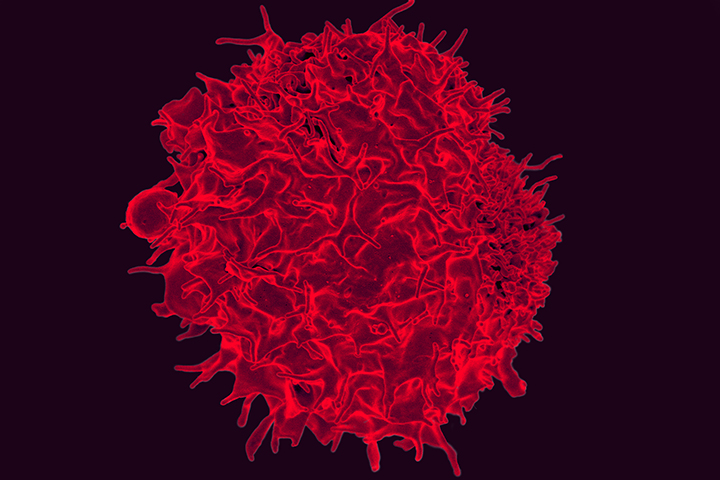Testing a New Immunotherapy Combo in Advanced Pancreatic Cancer

Could a combination of a monoclonal antibody and a new immunotherapy drug induce a stronger immune response in ‘cold’ tumors?
Treating pancreatic cancer through immunotherapy has been notoriously difficult, as the tumors tend to be resistant to single immunotherapeutic agents. Researchers are hoping that adding a new T cell therapeutic might make solid tumors more responsive to immunotherapy.
The Immunotherapy Combination
This clinical trial is studying the effectiveness of combining NT-I7 (efineptakin alfa) with the PD-1 checkpoint inhibitor pembrolizumab.
Pembrolizumab is a monoclonal antibody that is part of a class called checkpoint inhibitors. These drugs help restore the immune functions of T cells, so the body recognizes the cancer cells as foreign and kills them.
NT-I7 is a modified version of the protein interleukin 7 (IL-7) with a prolonged efficacy. IL-7 is a fundamental cytokine involved in T cell development that helps sustain the immune response to chronic antigens (as in cancer) or foreign antigens (as in infectious diseases).
The drug is being tested to see if it can increase T cell infiltration in the tumor microenvironment of many hard-to-treat cancers, including triple-negative breast cancer, non-small cell lung cancer, small cell lung cancer, ovarian cancer, and microsatellite stable colorectal cancer.
How the Trial Works
The trial includes phases Ib and IIa. The purpose of the phase 1b study is to determine the safety and tolerability of the drug combination, as well as the maximum tolerated dose and/or the recommended phase II dose. Participants in this phase will receive escalating doses of NT-I7 until they reach the maximum tolerated dose and/or the recommended phase 2 dose. NT-I7 will be administered on Day 1 of alternate 21-day cycles (Cycle 1, 3, 5 etc.), while pembrolizumab will be administered intravenously on Day 1 of every cycle.
Once the recommended dose of NT-I7 is established, it will be tested in phase 2a of the trial. The purpose of this arm of the trial is to assess the preliminary anti-tumor activity of the NT-I7-pembrolizumab combination. Pancreatic cancer patients who have not been treated with checkpoint inhibitors may also receive extra doses of the drugs in the study. Participants will be monitored for treatment effectiveness and survival.
We encourage you to consult your physicians for clinical trials that may be right for you. The website ClinicalTrials.gov provides more details about this trial as well as many others. You can visit the Let’s Win Trial Finder for a list of all active pancreatic cancer clinical trials.





